Having grown up in the world of competitive swimming, I’m no stranger to the pain of 5am alarm calls, early morning training sessions and the need for at least one cup of coffee to help me function.
In my mind, there’s no doubt that a few too many late night - early morning combos and the resultant lack of sleep (particularly during my university days) will have contributed to a few below-par sessions, but what would have happened to my performance if I’d endured poor sleep quality on a consistent basis?
How does a lack of sleep affect health?
Failing to enjoy the recommended 7-9 hours of sleep per night regularly is common in today’s society, with one in three of the British and American populations failing to get the recommend amount, largely due to factors such as stress, work and intense schedules.
A prime example of the effects of extreme sleep deprivation were exhibited during a TV show in 2004. ‘Shattered’ was a British reality TV series where contestants attempted to go 7 days without sleep in order to be in with a chance of winning £100,000. The show received a number of complaints from the public due to the torture faced by the contestants as they battled through long, sleep deprived days.
The effects of missing out on sleep were clear to see, with one contestant hallucinating and convincing himself he was the Prime Minister of Australia!
In the real world, perhaps you’re not hallucinating about becoming the next PM, but you could still be suffering some serious health issues if your sleep deprivation becomes chronic.
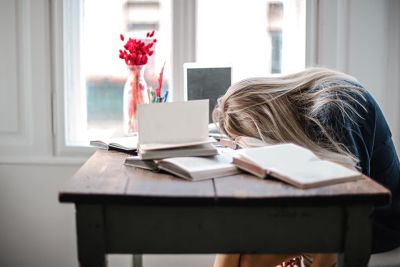
Prime Ministers and sleep deprivation seem to go hand-in-hand as it’s been claimed that Margaret Thatcher infamously only slept for 4 hours a night. It’s not uncommon for people to proudly state they can function off such little sleep because they seem to manage the short-term impacts well.
However, the NHS states lack of sleep can increase your risk of cardiovascular disease, type 2 diabetes, high blood pressure, mental illness, a weak immune system, and ultimately lead to a shortened life expectancy.
A 2014 report in the US found that 7 out of 15 of the leading causes of death can be linked to reduced sleep duration.
The short and long-term health effects of sleep deprivation can be debilitating, so how does a lack of sleep affect athletic performance?
How does a lack of sleep affect performance?
I’ve found my own motivation for training and my subsequent performance can be affected by a lack of sleep, and I can only dream (literally) of sleeping like tennis legend Roger Federer.
Federer famously slept for around 12 hours every day, while Olympic record-breaker Usain Bolt got between 9.5 to 10 hours sleep every night during his athletic career.
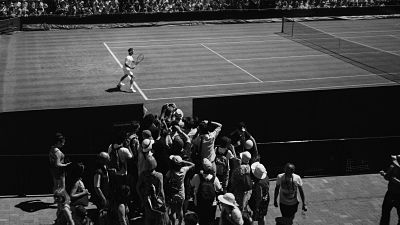
However, the research suggests that most elite athletes don’t sleep as well as these two legends of sport (and sleep).
For example, ultrarunners and athletes taking part in multi-day races or Fastest Known Time attempts will often be running over several days or overnight, with little or no sleep at all.
Whilst some runners will choose to stop throughout the race for power naps, others will continue to the finish with no sleep - a 2018 study found that more than half of ultramarathon runners slept during an event lasting 48 hours.
Whereas Dean Karnazes once ran 350 miles over three nights with no rest.
On the third sleepless night, I found myself running down the middle of the road. Knowing better, I meandered back over to the shoulder. Then it happened again. I woke up running down the middle of the road and I realised that I was sleep-running. That was kind of freaky.
Going three nights without sleep is an extreme case of sleep deprivation and will be relatively rare for most endurance athletes, but there’s still a danger of becoming sleep deprived if you’re not gaining the recommended 7-9 hours of quality sleep each night on a regular basis.
To put this into perspective, a 2021 review found that between 50-78% of elite athletes across the globe experience disturbed sleep. Another study from 2012 found a group of Olympic athletes enjoyed an average of only 6 hours and 55 minutes sleep a night, and compared to healthy non-athletes took longer to fall asleep, spent more time awake in bed, and woke up more times during the night.
Further research in 2014 found Olympic swimmers only enjoyed a paltry 6 hours and 12 minutes a night and the effectiveness of their training sessions was subsequently impaired.
These studies looked at why these athletes were getting lower quality and quantity of “zzzzs”, and put it down to their gruelling training schedules, timing of training (especially those 5am starts in swimming!), lengthy travel to competition, stress, pre-race anxiety, and overuse of smartphones and other technology.
Those factors are also applicable to athletes outside of the elite and professional sphere as many age-groupers and recreational athletes will be fitting in early morning training sessions before work, worrying about races, travelling, and enduring the stresses of everyday life.
In fact, an Italian study from 2007 found that recreational athletes actually reported significantly more chronic and occasional sleep disorders compared to Olympic athletes.
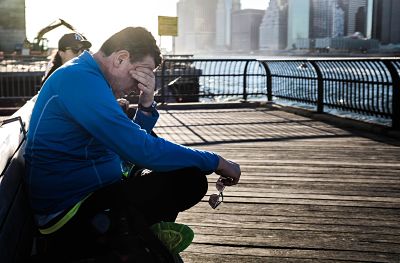
Issues associated with a lack of sleep when it comes to performance include:
- Poor muscle recovery, leading to injuries
- Decreased immune system function (increases your chances of upper respiratory tract infections such as the common cold, tonsillitis, and sinus infections)
- Altered perception of pain (making training and racing seem harder than usual)
- Imbalance in the nervous system (can cause overtraining symptoms)
- Impaired judgement / decision making
- Reduced reaction time
- Low mood
These are just a few factors that can impact the quality of training and performance, but what can athletes do to limit those negative effects and ensure they are getting enough shuteye?
Do you need technology to improve sleep quality?
The aforementioned research cited the overuse of smartphones and technology as one of the reasons why athletes might not be getting enough quality sleep. So, it’s perhaps ironic that there’s a growing trend for athletes to use technology in an attempt to improve their sleep.
As technology has advanced over the years, it’s easier and more affordable for most people to get their hands on wearables such as Garmin, Oura and WHOOP, which can provide data on how many hours you sleep, the number of times you wake during the night and your sleep stages.
The technology has obvious benefits as you can monitor your long-term sleep patterns, increase your sleep awareness and they’re relatively affordable. However, they also come with their drawbacks:
- When compared to polysomnography (the gold standard measurement of sleep, typically performed in a laboratory) the wearable devices aren’t as accurate
- They may overestimate your total sleep time
- Inaccurately measure your sleep cycles
- Could increase worry / anxiety around your sleep data, making you sleep worse
Now you’re probably not going to book in for regular polysomnography assessments, so using a wearable device to track your sleep may well be the next best option for now.
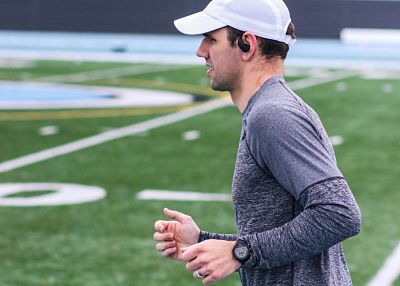
Blue light blocking glasses are another popular bit of kit being used as they filter out the short wavelength blue light from your phones and computer screens, which can disrupt your internal clock by inhibiting the release of melatonin (the sleep regulating hormone).
Although the jury is still out as there’s no strong scientific research to show just how effective they are yet, some wearers report reduced eye strain, less headaches, and improved sleep.
How to improve sleep quality
A 2019 study found that increasing sleep duration by an average of 90-minutes for only 3 nights improved performance in a 1-hour cycling time trial by 3%. The athletes in this study slept for an average of 8.4 hours per night, and claimed that getting more sleep improves cycling performance.
This research has given us a great insight into the potential performance benefits of sleeping more, but leaves us with the question - how can we sleep longer and better?
Before you shell out for a new Garmin or WHOOP, here are 5 cost-effective ways you can use in a bid to improve your sleep:
1. Afternoon naps
Finally, a scientifically proven excuse for that afternoon nap!
Napping could help to improve your endurance performance, if your training / work schedule doesn’t allow for an extra 90-minutes of sleep per night like the cyclists in the study.
Research shows that for those athletes getting less than the recommended 7-9 hours of sleep per night, a 20-30-minute nap can help to improve running endurance, whilst also making your run feel easier. Try to limit naps to no longer than 30-minutes, and try to time them between 1-4pm when we experience that ‘post lunch dip’.
I find a 30–45-minute 'Nanna nap' is just what I need in the early afternoon. It helps recovery and refreshes me for afternoon training. - Emma Jeffcoat, Australian elite triathlete and two-time ITU World Cup winner
2. Consistent sleep and wake times
By going to sleep and waking up at the same time every day, your body clock and brain get into a good routine, helping you to feel refreshed when you wake.
To help stick to this routine, don’t lie awake in bed for long periods, get plenty of daylight, and move your alarm away from the bed to avoid hitting snooze.
3. Wind down properly
Have a relaxing bedtime routine, allowing 30-60-minutes for quiet relaxation can help you to sleep better. Listening to relaxing music, reading a book, or some gentle stretching should help you to wind down.
4. Make your bedroom a sleep-friendly environment
In 2016, Team Sky gave an insight into their ‘hotel set-up’ which saw them ensure riders' own mattresses and pillows were carted from one hotel to the next to ensure a good night’s sleep. They also used hypoallergenic bedding, dehumidifiers, air purifiers, air conditioning units and heaters.
While lugging around your mattress to every competition might be tricky, there are some easier ways you can control your bedroom environment.
Make sure your bedroom is comfortable, cool, dark and quiet. Keeping your bedroom temperature somewhere between 60-71 degrees Fahrenheit (15.6-22 degrees C) helps us to stay cool and avoid being woken up by excess heat.
I have always used earplugs and an eye mask to help me get a good night’s sleep. I find it difficult when having to share a room with others, so I’ve found out that these two cheap items are a godsend if sharing a room with family or friends.
- Hamish Reilly, winner of the 2018 Leeds Castle Sprint Triathlon
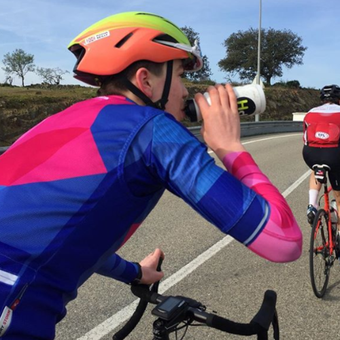
5. Consider your diet
Although caffeine is a popular ergogenic aid amongst athletes of all levels, try to avoid it in the afternoon as it can stay in the system for several hours. After around 4pm, making the switch to decaf or avoiding caffeine altogether could help to improve your sleep.
Also, try to avoid alcohol and nicotine as they can disrupt your sleep. Although a glass of wine can help some people to relax and fall asleep, alcohol is known to affect the quality of sleep. Nicotine on the other hand is a stimulant, meaning many smokers may struggle to fall asleep, or get less deep sleep.
Heavy meals too close to bedtime should also be avoided if possible, as the digestion process raises body temperature and could keep us awake.
Summary
So, the research shows that being sleep-deprived can affect health and sports performance, and many active folk just aren’t getting enough shut-eye.
The good news is that for most cases, preventing sleep deprivation and getting back on track can usually be done by following just a few easy steps.
Making your bedroom a relaxing environment, winding down properly and squeezing in afternoon naps (if possible) all help clock up those important hours of sleep.
